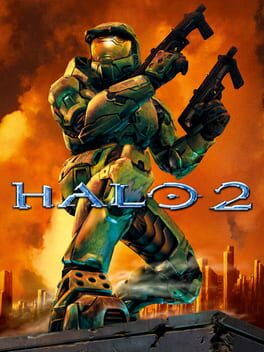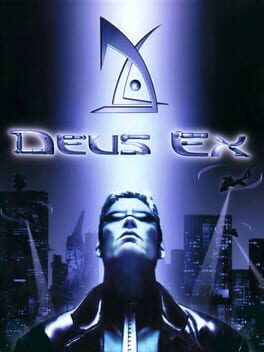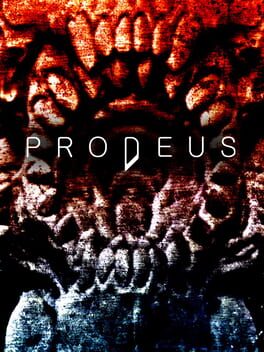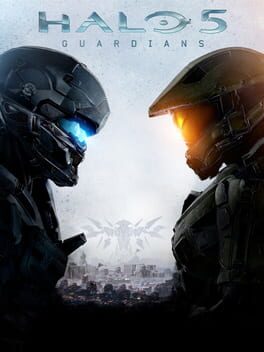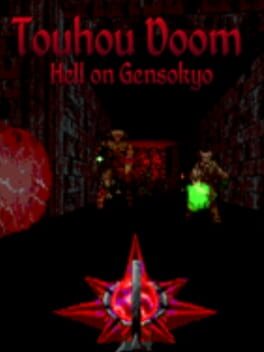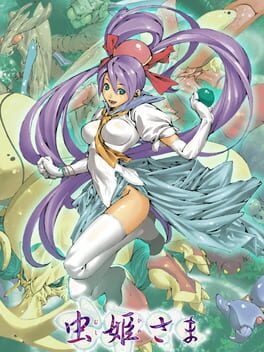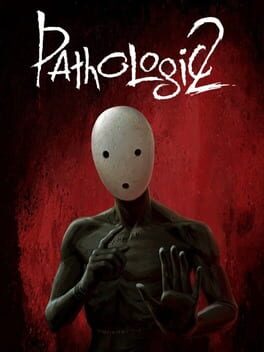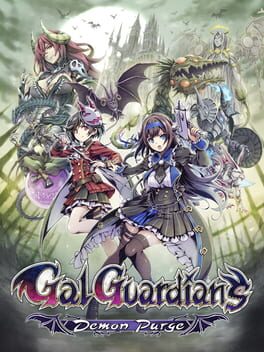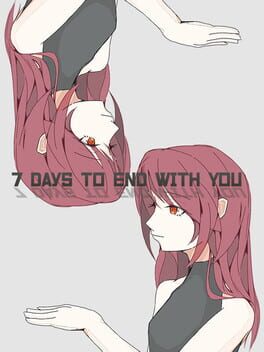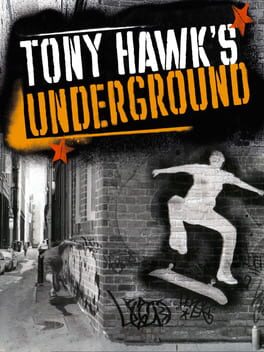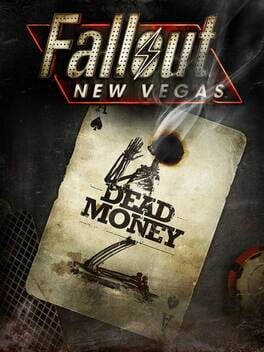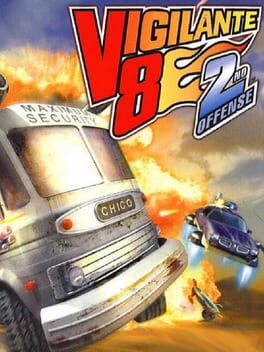Cakewalking
2004
Pardon me for overreacting but Halo 2 campaign is a disaster. You can see how much of it was cobbled together by overworked devs trying to salvage a project that clearly went way too out of scale for an underpowered original xbox. It was the most frustrating and underwhelming game on my Halo campaign binge.
The first level is the last good level, this is when the game doesn't show its flaws as intensity of encounters is still low and pacing is tight. The second level where the game establishes its worst trope is when it all falls apart. Let's lock the player in an arena and dripfeed 7-10 scarce enemy waves while they die of boredom. Let's do it again! And again! Bungie clearly didn't have enough levels and layouts for a substantial campaign in time, but this desperate attempt to pad out the play time is even worse than copy paste rooms in original Halo as the encounter pacing is totally out of player's control and it's frustratingly, ABYSMALLY slow. I'm baffled how they thought it's a good idea
On the other hand, the balance was hastily retouched to be all around wack: health is no more, hitscan is way overtuned and so is enemy melee which renders close quarters combat ineffective and makes attempts at weaving around enemy positions easily punished. Thus the best tactic is taking a mid-range to high-range hitscan weapons (of which there are quite a few new types in Halo 2) and trying to take out enemies from safe distance and cover. It's boring, and it's a preferable way to do things every time and you'll be in for a bad time if you're intent to do things differently on a heroic-legendary difficulty. These issues are exacerbated with introduction of brutes who are an awful damage sponges and have absolutely no good counter-approach except blowing them off with well aimed plasma grenade or 3 beam rifle headshots from a kilometer away.
The campaign itself is a hot mess with uninspired and constrained level layouts and slow uneventful venicle sections taking up way too much time. There's no Keyes, no The Covenant, I struggle to come up with any level that genuinely stood out. Nothing as dreary as the Library this time, but flood exclusive levels take up one too many spots on mission select screen yet again.
Is it all so bad? No. Arbiter is a good addition and his cloak ability adds some strategic opportunities in combat the game so desperately lacks. The plot is kinda trashy but I definitely appreciated how the story enriches the universe by adding some lacking nuance to covenant and flood. And there are plenty of situations in the back half of the campaign when it pits two hostile opposing forces against each other and lets you use an on-going conflict to your advantage, which is when the game shines the most. Oh and Anniversary visuals are just beautiful, one of the better realized visual remakes I've seen that genuinely enhances the game with some subtle touches original lacked.
But all in all, incredibly frustrating balance and sloppy encounter design makes it the worst Halo campaign in my eyes. It aged way worse than Combat Evolved which was a rough game with genius DNA and it doesn't hold a candle to Halo 3 which made away with almost every issue listed in this review. It presents an interesting case study of what can go wrong during game development when you have a remarkable framework but make unfortunately bad decisions to sink it down. Kind of a bummer.
The first level is the last good level, this is when the game doesn't show its flaws as intensity of encounters is still low and pacing is tight. The second level where the game establishes its worst trope is when it all falls apart. Let's lock the player in an arena and dripfeed 7-10 scarce enemy waves while they die of boredom. Let's do it again! And again! Bungie clearly didn't have enough levels and layouts for a substantial campaign in time, but this desperate attempt to pad out the play time is even worse than copy paste rooms in original Halo as the encounter pacing is totally out of player's control and it's frustratingly, ABYSMALLY slow. I'm baffled how they thought it's a good idea
On the other hand, the balance was hastily retouched to be all around wack: health is no more, hitscan is way overtuned and so is enemy melee which renders close quarters combat ineffective and makes attempts at weaving around enemy positions easily punished. Thus the best tactic is taking a mid-range to high-range hitscan weapons (of which there are quite a few new types in Halo 2) and trying to take out enemies from safe distance and cover. It's boring, and it's a preferable way to do things every time and you'll be in for a bad time if you're intent to do things differently on a heroic-legendary difficulty. These issues are exacerbated with introduction of brutes who are an awful damage sponges and have absolutely no good counter-approach except blowing them off with well aimed plasma grenade or 3 beam rifle headshots from a kilometer away.
The campaign itself is a hot mess with uninspired and constrained level layouts and slow uneventful venicle sections taking up way too much time. There's no Keyes, no The Covenant, I struggle to come up with any level that genuinely stood out. Nothing as dreary as the Library this time, but flood exclusive levels take up one too many spots on mission select screen yet again.
Is it all so bad? No. Arbiter is a good addition and his cloak ability adds some strategic opportunities in combat the game so desperately lacks. The plot is kinda trashy but I definitely appreciated how the story enriches the universe by adding some lacking nuance to covenant and flood. And there are plenty of situations in the back half of the campaign when it pits two hostile opposing forces against each other and lets you use an on-going conflict to your advantage, which is when the game shines the most. Oh and Anniversary visuals are just beautiful, one of the better realized visual remakes I've seen that genuinely enhances the game with some subtle touches original lacked.
But all in all, incredibly frustrating balance and sloppy encounter design makes it the worst Halo campaign in my eyes. It aged way worse than Combat Evolved which was a rough game with genius DNA and it doesn't hold a candle to Halo 3 which made away with almost every issue listed in this review. It presents an interesting case study of what can go wrong during game development when you have a remarkable framework but make unfortunately bad decisions to sink it down. Kind of a bummer.
2000
Monumental, uncomfortable and humane, Deus Ex used to be the biggest omission from my gaming experience and I finally sat down to play it in 2020, the year when game's prodigious far sight reached terrifying heights.
It is still to this day a model example of fantastic game design aided by visual coherence. Early 3D look leads to no visual clutter, making all important details and interactables pop and catch the eye, guiding you through complex environments with invisible hand. Aspects like limited inventory space or aim reticle shrinking when you stand still seem constraining at first, but they teach you punctuality and preciseness, leading to better understanding of environment, power and available resources. From the bumpy beginning Deus Ex nurtures you to do measured choices when dealing with problems which carries from gameplay to story, and you'd be pressed to find a game that does it so seamlessly.
There was a certain moment though when it's all clicked. The note about partitioning New York into segregated blocks to counter the terrorist threat hit way too close to home. It reminded about my own country's safety theatre. How with an excuse to prevent attacks the government tightened up the security in public places in a way that probably won't be too helpful against terrorism, but is very handy to keep surveillance and inspection of people while also implanting the idea of constant danger in minds of populace. And that's... exactly what was going on in Deus Ex. And they predicted this development back in 2000. Kind of an impressive prognosis, isn't it?
That's the power of Deus Ex you see everyone talking about. In bold strokes it makes assumptions about the future which land eerily close to reality, and this state of artful hyperrealism creates an incredible sense of investment. It's quite rare for a game to make me look in every note, read every e-mail and diary. Even rarer when a game manages to have me seek exposition, not dread it. I just couldn't get enough of this world and wicked reflections of us it manages to create.
Of course it's still a game, an entertainment. It's dumb, self-aware, it's full of silly video game things and it doesn't want to be taken seriously. Down to the core Deus Ex is still just a incredibly fun and campy adventure of a lovable secret agent untangling the conspiracy of goofy villains whom you love to hate. But it also wishes to enrich and challenge your worldviews like some of the best written media does. And that's undoubtedly very special.
It is still to this day a model example of fantastic game design aided by visual coherence. Early 3D look leads to no visual clutter, making all important details and interactables pop and catch the eye, guiding you through complex environments with invisible hand. Aspects like limited inventory space or aim reticle shrinking when you stand still seem constraining at first, but they teach you punctuality and preciseness, leading to better understanding of environment, power and available resources. From the bumpy beginning Deus Ex nurtures you to do measured choices when dealing with problems which carries from gameplay to story, and you'd be pressed to find a game that does it so seamlessly.
There was a certain moment though when it's all clicked. The note about partitioning New York into segregated blocks to counter the terrorist threat hit way too close to home. It reminded about my own country's safety theatre. How with an excuse to prevent attacks the government tightened up the security in public places in a way that probably won't be too helpful against terrorism, but is very handy to keep surveillance and inspection of people while also implanting the idea of constant danger in minds of populace. And that's... exactly what was going on in Deus Ex. And they predicted this development back in 2000. Kind of an impressive prognosis, isn't it?
That's the power of Deus Ex you see everyone talking about. In bold strokes it makes assumptions about the future which land eerily close to reality, and this state of artful hyperrealism creates an incredible sense of investment. It's quite rare for a game to make me look in every note, read every e-mail and diary. Even rarer when a game manages to have me seek exposition, not dread it. I just couldn't get enough of this world and wicked reflections of us it manages to create.
Of course it's still a game, an entertainment. It's dumb, self-aware, it's full of silly video game things and it doesn't want to be taken seriously. Down to the core Deus Ex is still just a incredibly fun and campy adventure of a lovable secret agent untangling the conspiracy of goofy villains whom you love to hate. But it also wishes to enrich and challenge your worldviews like some of the best written media does. And that's undoubtedly very special.
2020
Didn't want to write this review based on the early access version, but I'm really not sure what's with negativity here. Prodeus is quite fine, even good actually. It's boomer comfort food, so initially I have also been wondering how it's marginally different from flashy Doom wads, but strenghts of it became apparent as I progressed.
The level design is pretty tight, encounters are well paced and there's great variety to how they flow level to level. From descending vertical floors to vast horizontal fields, I had plenty of neat gameplay moments simply due to good enemy spawns and level layouts. The weapon balance so far has been some of the best in the genre as I found situations where every weapon out of initial 11 has been particularly useful. Even plasmagun which is usually just an underwhelming replaceable projectile assault rifle has a neat quirk that makes the gun very handy if you need to shoot something down from safety behind the corner.
If I had to nitpick it that would be for lacking visual clarity in enemy silhouttes, which is not that bad usually, but in a game about enemy prioritization and space management it led to a few frustrating moments when I confused a shotgunner with a simple zombie or didn't notice an approaching pressure demon. Also weapons requiring reloading went against my instincts initially, but it was fine once I adjusted.
Verdict so far? Pretty cool. We'll see how it goes once the full game is out.
The level design is pretty tight, encounters are well paced and there's great variety to how they flow level to level. From descending vertical floors to vast horizontal fields, I had plenty of neat gameplay moments simply due to good enemy spawns and level layouts. The weapon balance so far has been some of the best in the genre as I found situations where every weapon out of initial 11 has been particularly useful. Even plasmagun which is usually just an underwhelming replaceable projectile assault rifle has a neat quirk that makes the gun very handy if you need to shoot something down from safety behind the corner.
If I had to nitpick it that would be for lacking visual clarity in enemy silhouttes, which is not that bad usually, but in a game about enemy prioritization and space management it led to a few frustrating moments when I confused a shotgunner with a simple zombie or didn't notice an approaching pressure demon. Also weapons requiring reloading went against my instincts initially, but it was fine once I adjusted.
Verdict so far? Pretty cool. We'll see how it goes once the full game is out.
2019
It started just like a projective geometry exam I had in uni, but then went on introducing new ideas at a galloping pace. You do have to think outside the box a lot which is the game's biggest success, but since each new idea gets immediatelly thrown away after minutes of runtime there's just not much to latch on to. It's impressive nonetheless.
2015
Speaking exclusively of campaign, there's a solid mechanical skeleton here, but it falls short of almost everything else.
1. Being balanced around coop means arenas are crammed with fodder which, despite advanced movement, force you to engage in shooting galeries since the density of enemy fire is so damn high all the time.
2. Bots' stupidity constantly creates these frustrating moments when they push forward and thoughtlessly die leaving you stand on the defensive alone against the horde of enemies.
3. Elite AI didn't recover since Halo 4, and promethians, while being a noticeable improvement, still aren't as interesting to fight on their own.
4. Levels stop being a repetitive drag and attempt something of a creative objective and encounter design just when the game is nearly over.
5. Don't think this story is possible to parse unless you're studied Halo scholar who has read all Halo novels
6. With all said and done it's not even close to being misery fiction that is Halo 2, at least it's functional
1. Being balanced around coop means arenas are crammed with fodder which, despite advanced movement, force you to engage in shooting galeries since the density of enemy fire is so damn high all the time.
2. Bots' stupidity constantly creates these frustrating moments when they push forward and thoughtlessly die leaving you stand on the defensive alone against the horde of enemies.
3. Elite AI didn't recover since Halo 4, and promethians, while being a noticeable improvement, still aren't as interesting to fight on their own.
4. Levels stop being a repetitive drag and attempt something of a creative objective and encounter design just when the game is nearly over.
5. Don't think this story is possible to parse unless you're studied Halo scholar who has read all Halo novels
6. With all said and done it's not even close to being misery fiction that is Halo 2, at least it's functional
2012
2019
Pathologic 2 occupied my mental state. I had a tetris-like experience with it, when at some point my dreams became Pathologic as I kept seeing the imagery of the town and contant time opression. It's such an engaging game and the most surprising thing about it is how enjoyable it was to play. If you try to break it down to basics then you can describe Patholofic 2 a routing/resource management game. Each in-game day you have several objectives to fulfill which will be sparsely spread around the town and the aim is to create the route optimized, ideally, for the best time and most conservative resource expendeture. As you come to grips with mechanics and learn the structure of the city you also learn how to circumvent cutthroat resource drain through exploration, barter, crafting and timely task fulfilment. But Pathologic wouldn't be Pathologic if it didn't try to bring you back to your knees when you start to get a handle of the whole process. The game constantly throws curveballs in your plans by changing the state of the world and even its own rules each new day of the play. This an ever-regressing world and as one of the most important people in the town you gain opportunities to slow down the degradation, but since mistakes are unavoidable you will find yourselves in situations when you have to give up something important. While struggling for your own life you'll probably have to stop pursuing a goal, or give up a chance to gain information, or maybe you'll have to bet on the life of a story character. Dialogue and character interactions themselves become the reward in such an opressive gameplay flow. The journey to unfold the nature of the cosm is full of pain, dread and sorrow, but it's also one of the most rewarding gaming experiences you can have. Masterpiece
Chants of Sennaar got me on a little cosntructed language kick so I plowed through this one over night. The core idea to have a single character who relays the language to you and wishes you to help learn it is pretty incredible. The execution is... poor to say the least.
The language itself is, and I'm sorry to say this, lame as shit. I don't even mind that vocabulary (huge spoilers!) basically being encoded English, but there's just no consistent rules to grab on to, like the ways plurals are constructed, differences between verbs and nouns, tenses, word order, nothing! The grug speak comments are fully warranted here.
The other fault of the game is that it uses language as purely descriptive tool. You'd think that it'll utilize the strength of the medium and let you engage in conversations of some manner with your virtual friend. But no, your primary way of learning is to point at items in the house and make your oomfie espouse the descriptions. You can have the same experience in your own house with google lens set to Dutch, it's just so cursory and boring.
There are glints of cool environmental storytelling, and the "hidden twist" would be awesome in a game with actual structure, if there was an emphasis on emotional bond you create by overcoming linguistic hurdles. But as things stand, 7 Days is such a waste of a great concept.
The language itself is, and I'm sorry to say this, lame as shit. I don't even mind that vocabulary (huge spoilers!) basically being encoded English, but there's just no consistent rules to grab on to, like the ways plurals are constructed, differences between verbs and nouns, tenses, word order, nothing! The grug speak comments are fully warranted here.
The other fault of the game is that it uses language as purely descriptive tool. You'd think that it'll utilize the strength of the medium and let you engage in conversations of some manner with your virtual friend. But no, your primary way of learning is to point at items in the house and make your oomfie espouse the descriptions. You can have the same experience in your own house with google lens set to Dutch, it's just so cursory and boring.
There are glints of cool environmental storytelling, and the "hidden twist" would be awesome in a game with actual structure, if there was an emphasis on emotional bond you create by overcoming linguistic hurdles. But as things stand, 7 Days is such a waste of a great concept.
Oh this was a blast from the past and it really held up in 2020. You immediately notice how much of a time capsule for early 2000s punk culture it is, but it's never as obnoxious about it. The story is fun, and unlike games later in the series the tone of it comes off as funny and endearing. What really stands up though is creativity on display: some of the best laid out levels and most fun level tasks in the series history come from THUG. And controls were solidified and perfected by this point in series history, so campaign works really well as introduction to high level Tony Hawk gameplay gradually introducing new tricks and ramping up the complexity of tasks. This was one of my favorite never finished childhood games and I'm glad I was finally able to complete it and had heck of a good time doing so.
Your vn be so fine then bam! Rape.
Majikoi is a dopamine rush in software form. When it sets off to entertain – it's always fun. When stopping to explore its characters – it's expressive and meaningful. It's not a particularly deep story, but it doesn't miss a beat in a tale it wants to tell. When it's good – it's really fucking good and I genuinely want to love it.
It's also an eroge, and with some particularly disgusting moments to come. I don't mind horny especially when it's funny, I can stand silly anime shit like peeking after girls in hot springs. But the way it treats sexual assault is insane and you cannot read that one scene in Chris route and not think whoever wrote this must be a fucking psychopath. With all its strong points I just cannot think good of something so morally daft.
Would be easy 5 stars if it was just Yukie route though.
Majikoi is a dopamine rush in software form. When it sets off to entertain – it's always fun. When stopping to explore its characters – it's expressive and meaningful. It's not a particularly deep story, but it doesn't miss a beat in a tale it wants to tell. When it's good – it's really fucking good and I genuinely want to love it.
It's also an eroge, and with some particularly disgusting moments to come. I don't mind horny especially when it's funny, I can stand silly anime shit like peeking after girls in hot springs. But the way it treats sexual assault is insane and you cannot read that one scene in Chris route and not think whoever wrote this must be a fucking psychopath. With all its strong points I just cannot think good of something so morally daft.
Would be easy 5 stars if it was just Yukie route though.
I'm revisiting New Vegas and doing my first new playthrough since game's release in 2010 which makes it time to check what those DLCs were all about. Ten hecking years later!
So far it's been a hit. In a way this DLC is Obsidian's school of doing Operation Anchorage while retaining the strengths of Fallout's systems. Dead Money also strips player off safety of accumulated equipment and directs them the path of linear exploration of a pre-nuclear world setting with very few distractions on the way, except it actually delivers on all fronts. The richness of New Vegas problem solving is still present, but opressiveness of environment and initial resource draught leads to a progression that's more coolheaded and cautious than usual. The combat never reaches the tightness of a proper survival horror title, but ghosts still make for some of the best encounters in the game by utilizing hard-hitting yet dodgeable projectiles as weapons and actually making Fallout's ridiculous limb destruction system matter in combat.
While the act of playing is pretty solid it's writing that manages to create real stakes here. Sierra Madre's history is confusing and bizarre, it's another case of great New Vegas world building through the mix of environmental storytelling, terminal notes from the past and character dialogue that gradually sheds light on the playstage . The cast of people you are unwillingly forced to cooperate with is, for the lack of better world, brilliantly broken, and exploring their pasts and problems is even more onerously interesting than the casino itself. It's all very engaging stuff and my only little issue would be just how ridiculously world-disrupting the technology of this DLC is which directly plays into antagonist motives, but it's not the first time you have to suspend your disbelief in Fallout.
Overall? High mark for a piece of downloadable content and starting Honest Hearts already made me wonder if other expansions in the pack manage to reach it.
So far it's been a hit. In a way this DLC is Obsidian's school of doing Operation Anchorage while retaining the strengths of Fallout's systems. Dead Money also strips player off safety of accumulated equipment and directs them the path of linear exploration of a pre-nuclear world setting with very few distractions on the way, except it actually delivers on all fronts. The richness of New Vegas problem solving is still present, but opressiveness of environment and initial resource draught leads to a progression that's more coolheaded and cautious than usual. The combat never reaches the tightness of a proper survival horror title, but ghosts still make for some of the best encounters in the game by utilizing hard-hitting yet dodgeable projectiles as weapons and actually making Fallout's ridiculous limb destruction system matter in combat.
While the act of playing is pretty solid it's writing that manages to create real stakes here. Sierra Madre's history is confusing and bizarre, it's another case of great New Vegas world building through the mix of environmental storytelling, terminal notes from the past and character dialogue that gradually sheds light on the playstage . The cast of people you are unwillingly forced to cooperate with is, for the lack of better world, brilliantly broken, and exploring their pasts and problems is even more onerously interesting than the casino itself. It's all very engaging stuff and my only little issue would be just how ridiculously world-disrupting the technology of this DLC is which directly plays into antagonist motives, but it's not the first time you have to suspend your disbelief in Fallout.
Overall? High mark for a piece of downloadable content and starting Honest Hearts already made me wonder if other expansions in the pack manage to reach it.
